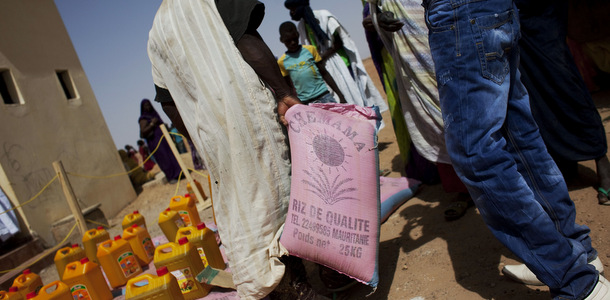When you first heard about the food crisis in the Sahel — if you’re not learning about it now, for the first time — you probably felt a sense of déjà vu. Wasn’t it just last year that a major famine struck Africa? Yes, but that was the Horn of Africa, consisting of Somalia, Ethiopia, and neighbouring countries on the east coast. Now, it is eight West African nations that are perilously close to famine.
Due to the frequency of humanitarian crises, particularly in Africa, it’s understandable (though no less shameful) that we grow weary of hearing about them. With the exception of the most cataclysmic events, we pay little notice unless we feel a personal connection with those who are suffering.
For the first time, I developed such a connection. It was just three weeks ago that I returned from Niger. I traveled there with Development and Peace, who, together with the
Canadian Foodgrains Bank, are supporting the work of
Caritas Niger (CADEV). CADEV is providing food aid to communities that have exhausted their supply since the last harvest, while also equipping farmers with techniques to improve their crops.
First-hand, I learned why we need to care about the Sahel. An estimated 12 million people, including 1 million children, are at risk.
The Development and Peace website succinctly explains the crisis. The crops from the previous harvest failed, reserve food stocks are depleted, and food prices have skyrocketed, forcing families to sell what little resources they have, including precious livestock.
The situation is dire, such that the Canadian government is now matching funds to registered charities like Development and Peace for their emergency appeal for the Sahel.
Still, statistics and government appeals are unlikely to motivate us to act. After having seen the situation for myself, I believe that what ultimately compels us to help is getting to know the men and women who are suffering. That’s the goal of a documentary that we’re preparing on the food crisis: to ensure that we all develop a personal connection to the people of the Sahel.
But in the mean time, there is no reason to hesitate. The Canadian bishops are among those
encouraging us to act now before a famine occurs -- and to not allow our consciences to dull, or despair to set in, as Africa enters yet another crisis.
-
Photo credit: CNS / Susana Vera, Reuters